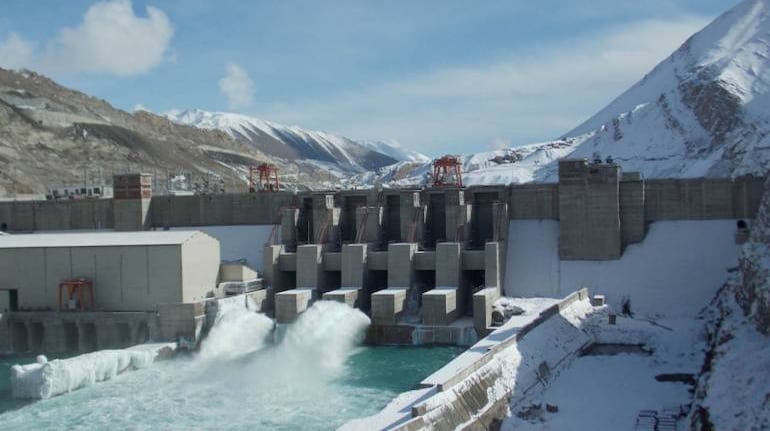



NHPC Ltd, the public sector hydropower company, will need at least Rs 11,000 crore to augment its resources and acquire THDC India and NEEPCO as part of a government plan to merge hydel companies and improve efficiency, a top company official told Moneycontrol.
“Firstly, the proposal that is being worked upon is not literally a merger – it is for acquisition or takeover. Our assessment so far shows that any acquiring considerations of THDCIL and NEEPCO will not be possible without the government’s help,” NHPC director (finance) RP Goyal said.
In April, Union minister for power and renewable energy RK Singh told Moneycontrol that the government intends to merge THDC India and NEEPCO with NHPC. The government hopes this will improve efficiency and cut costs as hydropower projects are often delayed, sometimes stretching over a decade or two, due to geological factors, local pushback and a series of clearances.
Goyal said NHPC has limited resources and may have to turn to the government to acquire the two smaller hydel companies.
Limited resources
“If you look at NHPC’s current capital allocation, out of the total cash generation, we have a commitment of around Rs 10,000 crore for capex, and then 50 percent goes as dividend pay-out. So, if we have to deploy an additional Rs 11,000 crore for capex in order to acquire the two hydel PSUs, then the dividend payout needs to be adjusted (reduced) somewhere. That's how we are considering it for now,” he said. “Financially, we have limited resources in NHPC's bucket.”
Senior officials in these hydel companies said on condition of anonymity that for NEEPCO, which is a wholly owned subsidiary of NTPC, NHPC will need at least Rs 5,000 crore. For THDCIL, in which NTPC has 74.496 percent ownership and the Uttar Pradesh government has a 25.5 percent stake, NHPC will require about Rs 6,500 crore.
Also read: Exclusive | No more wind energy; NHPC will focus on solar power, says official.
According to analysts, the acquisitions may result in reduction of the dividend that the government gets from NHPC, which is equivalent to 5 percent of the company’s net worth. Analysts requesting anonymity said Rs 1,700-1,800 crore of NHPC’s profit, or about 50 percent of its profit, goes in dividend pay-outs.
“Such an acquisition can be possible if the 5 percent which goes as dividend pay-out to the government is reduced as it will then create a substantial amount of cash, which can be diverted to the acquisition. If it is a strategic consolidation of all public sector hydropower companies including SJVN, which is also into this power generation segment, then it could revive India’s hydropower story and increase its contribution in the country’s energy mix,” said an analyst.
Another analyst said the government of India doesn’t have a direct shareholding in NEEPCO and THDCIL.
“Whatever shareholding is there, it is that of NTPC. The government has already taken its consideration, its share price from NTPC, for these entities. So, there doesn’t seem to be any trade off or direct benefit for the government in this current proposal, unless it is a strategic consolidation,” the analyst said.
Hydropower contributes about 11 percent to India's energy mix, according to the Central Electricity Authority. NHPC has a 15 percent share (6,971 MW) of the total installed hydro-electric capacity of 46,850 MW. Hydropower is considered a flexible generator. Unlike coal-fired plants, the output of these units can be ramped up and down, in keeping with power demand.
Also read: All tenders for Dibang hydropower project to be awarded by December: NHPC Ltd.
Apart from ensuring energy security, India is looking at increasing its hydropower capacity in the Northeast for geopolitical reasons. China is on a mega dam construction spree on stretches of the Brahmaputra, called Yarlung Tsangpo, which pass through its territory. According to government data, the Brahmaputra alone can meet 40 percent of India’s hydropower potential.
Discover the latest Business News, Sensex, and Nifty updates. Obtain Personal Finance insights, tax queries, and expert opinions on Moneycontrol or download the Moneycontrol App to stay updated!
Find the best of Al News in one place, specially curated for you every weekend.
Stay on top of the latest tech trends and biggest startup news.